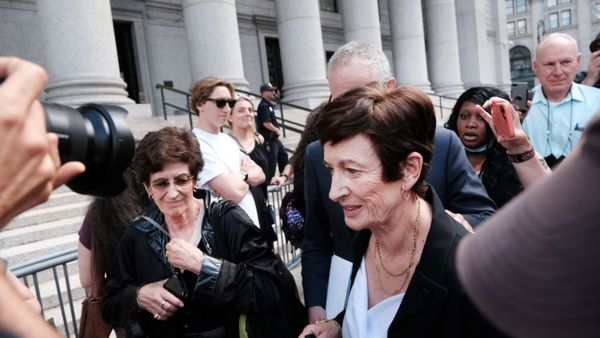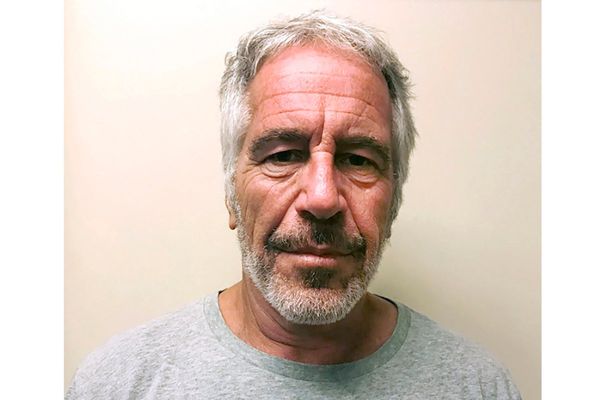Last week, HBO's The Last of Us surprised eagle-eyed fans of the video game by tweaking the story of one of its early important characters, Tess.
But this week creators Craig Mazin and Neil Druckmann delivered their biggest twist yet — completely rewriting the story of one of the original game's most beloved characters.
Making sweeping changes in adaptations is normally a quick ticket to fan outrage. And yet fans and newcomers to the series alike are hailing the new story as a "miniature masterpiece" and one of the best episodes of television for a long time.
So, what exactly did the creators change about the story of Bill, and why did they change it? Let's break it down.
Spoiler warning ahead, obviously, both for the first three episodes of The Last of Us television show and for early sections of the game.
A content warning as well, that this article will contain discussion of suicide.
Bill and Frank's story in episode three left viewers in tears. Their story in the game is darker and sadder
The introduction of Bill, the paranoid doomsday prepper, initially goes much the same in the 2013 video game original.
Having lost Tess, Joel decides his best chance to find the Fireflies (and his brother Tommy) is by getting a truck. Joel knows Bill is the man most likely to have a truck, and by chance Bill owes Joel a favour.
Joel and Ellie travel to Lincoln and after meeting up with Bill, players move through a sequence where the group picks its way through the town to repair a truck, ultimately attracting the infected.
Bill, Ellie and Joel take refuge in a house, and discover a corpse hanging from the ceiling. Bill explains that the body is Frank, his "partner". After inspecting the corpse, Joel determines that Frank had been bitten by an infected, and decided to take his own life before he could turn.
Players can find a note near the body written by Frank for Bill. It reveals the pair had a falling out, with Frank exhausted with Bill's paranoia and refusal to change.
"I want you to know I hated your guts," the note from Frank reads, with a joke saying that he expects his attempt to leave Bill will lead to his death.
The player can choose whether to reveal the note to Bill. If they do, Bill becomes visibly upset and tosses the note on the ground.
After more combat with the infected, Bill, Ellie and Joel repair a truck and drive towards the edge of town to leave. Before they do, Bill asks to be let out of the truck.
Joel and Bill agree this now means they're "square", and Bill makes it very clear how he feels about Joel and Ellie as he leaves.
"Get the f*** out of my town," he says. Players leave Bill still alive, but never encounter him again.
Bill was a hit with players, and the character won LGBTQ accolades
If you left episode three thinking "I bet Bill and Ellie meeting would have been fun", you're correct. Players loved the banter shared between the characters.
"There weren't many new LGBT characters to be found in mainstream video games this year, but one of 2013's most critically acclaimed featured a particularly interesting one," they wrote.
"Both helpful and contentious, Bill is as deeply flawed but wholly unique gay character found in any storytelling medium this year."
Polygon critic Danielle Riendeau praised the understated reveal of Bill's sexuality in the game, noting that many players missed the detail.
"Naughty Dog seems to have hit on an important strategy in writing queer characters in their games: They write a person first, and use their sexuality as one aspect of who they are," Riendeau wrote.
For the adaption,the creators said it was 'impossible' to directly translate Bill's story
That challenge presented Mazin and Druckmann with an opportunity to change the story, something Druckmann said he was "nervous about the most".
"This [television] story you could not tell in the video game. It'd be impossible to jump around that much … you couldn't go this long without some kind of action. And therefore you could tell this kind of really moving, slower romantic story where you jump around in years," he told the official HBO podcast.
On the flipside, Bill's exciting gameplay and action-heavy section from the game wasn't a good fit for TV.
"You're connecting with Bill in the game by playing alongside him. You're surviving sequences with him. You'd be bored out of your mind if you're not playing that sequence," Druckmann said.
As an original creator of the 2013 game and its 2020 sequel, Druckmann said he knew any change this big would be risky.
"I try to do the math of weighing it, how much do we gain because to me it's when you deviate that much there's a certain cost to it," Druckmann said.
"It was such a beautiful story that again explores the themes of love and the complexity that comes with love. Even though this Bill dies in a way that Bill doesn't die in the game, it's a happier ending."
Despite his reservations, the change has proved a hit
Fans and critics alike have heaped praise on the episode.
And if that episode left your emotions in shambles like it did the rest of the world, you should know that Druckmann ominously described this story as "the happy episode".
Buckle up for what's ahead folks.







